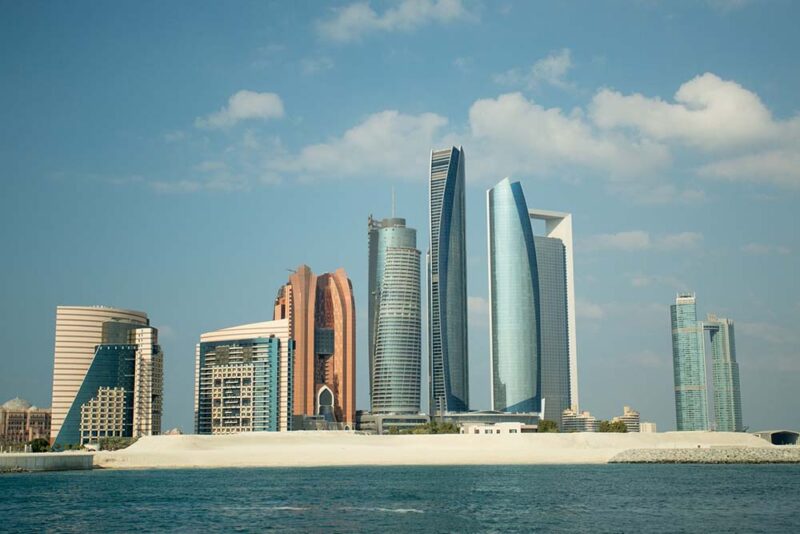A 99-year lease agreement allows an expat to own a property, excluding land, for ninety-nine years in Abu Dhabi. This arrangement offers security and reasonable upfront payment. On the contrary, a 99-year lease can affect the ROI and a major drawback is the lease expiry outcomes.
Let’s quickly weigh the pros and cons of a 99-year lease agreement to decide if it is something to be worried about.
- Understanding 99-year Lease in Abu Dhabi
- Expatriate Laws for Buying a Property in Abu Dhabi
- 99-Year Abu Dhabi Lease Aftermath
- Pros and Cons of 99-year Lease in Abu Dhabi
- FAQs

Understanding 99-year Lease in Abu Dhabi
As opposed to a freehold property where the expats enjoy full rights of property ownership, a leasehold is the opposite. In a leasehold, the buyer signs a lease agreement for 99 years. This means the buyer owns the property but not the land the property sits on. A trust holds the ownership of the land.
In 2015, an amendment took place where Abu Dhabi developed an Owners Association (OA). To build trust with the property buyers, the OAs now hold the land ownership. Property owners are members of OAs.
Expatriate Laws for Buying a Property in Abu Dhabi
Law No. 19 of 2005 Concerning the Regulation of the Real Estate Sector identifies four property buying systems for expats in Abu Dhabi. Expats can only own a villa or an apartment under these systems, excluding the land of the property.
Here are the main systems for expats to buy a property in Abu Dhabi:
1. Ownership by 99-Year Lease in Abu Dhabi
This agreement allows the property owner to fully dispose of the apartment or villa (excluding land). The lease period is 99 years, and expatriates are granted ownership rights.
2. Musataha
Under this agreement, expatriates buy a property for a lease period of 50 years. After the end of the lease agreement, both parties can mutually decide to renew it for a similar timeframe. Besides, the owner can use, modify or reconstruct the property within the specified period.
3. Usufruct
The lease period under the usufruct system is 99 years. The only difference between usufruct and ownership is that the property owner cannot modify or alter the property under the usufruct rights.
4. Long-Term Lease
The fourth on the list is the long-term lease agreement signed for at least 25 years.
The 2019 Amendment
An amendment was made to Abu Dhabi Real Estate Law in April 2019. As per the new amendment, foreigners can own real estate properties in the Abu Dhabi investment areas.
The right to own a property as per the amended Article 3(i) is limited to the following three categories:
- Emirates citizens, legal or natural persons.
- Public holding companies with non-national ownership lower than 49 percent.
- If the Abu Dhabi Crown Prince or the President of the Executive Council issues a decision to any person.
Article 3(ii) states the rights of non-UAE nationals, legal or natural persons. The aforementioned people can exercise all original and in-kind rights on real estate properties located within Abu Dhabi investment areas.
Areas in Abu Dhabi Where Expatriates Can Own a Property
Abu Dhabi has designated 9 areas where foreigners can own real estate properties. Here is the complete list:
- Yas Island
- Saadiyat
- Reem
- Mariya
- LuLu
- Al Raha Beach
- Sayh Al Sedairah
- Al Reef
- Masdar City
99-Year Abu Dhabi Lease Aftermath
A worrisome factor for people looking to invest in Abu Dhabi is what will happen after the lease expiry. Despite the recent introduction of freehold ownership in Abu Dhabi for expatriates, most people prefer leasehold. This is because of low cost and longer security.
Let’s discuss what happens after the 99-year lease expiry. Upon lease expiry, the property returns to the OAs. After this, the OAs can grant a lease extension to the owner. Until the extension or renewal of the lease agreement, the former owner has no rights over the property.
However, there is nothing bothersome about the agreement. The only concern is a little uncertainty. Nevertheless, deciding on a leasehold should be based on its pros and cons.

Pros and Cons of 99-Year Lease in Abu Dhabi
Let’s weigh down the pros and cons to see if a 99-year lease in Abu Dhabi works for you:
Pros
Here are the benefits a ninety-nine-year lease in Abu Dhabi offers:
- Long-Term Security: A long-term agreement helps avoid negotiations and offers long-term security.
- Reasonable Prices: The demand for leasehold properties automatically lowers the prices. Besides, one can buy leasehold properties at lower upfront rates.
- Access to Areas: Expats can buy leasehold properties in areas where freehold buying is restricted.
Cons
Let’s go through the cons of a ninety-nine-year lease in Abu Dhabi:
- Value Depreciation: The long-term lease may depreciate the property value over time. In addition, the lack of land ownership also affects the property’s financial value.
- Modification: An owner under a 99-year usufruct lease agreement cannot modify or change the property much.
- Renewal: Another potential drawback is failure to reach a mutual renewal agreement upon expiry of the 99-year lease.
FAQs
Yes! Abu Dhabi is a top attraction for real estate investors and non-Emiratis. The beautiful landscape, booming economy, and multicultural environment make it an ideal choice for buying an apartment in Abu Dhabi.
There are multiple ways to obtain a UAE Residency. One way is to invest a specific amount in the UAE. For instance, you can apply for an investment visa in Dubai by investing in the emirate’s residential property.
Leasehold allows the owner rights of property ownership, excluding land. On the contrary, freehold gives a complete right to own property including land. Read our detailed guide to leasehold vs freehold to know more.
The 99-year lease in Abu Dhabi offers long-term security and ownership for expats at a reasonable cost. Consider the pros and cons and make the right decision!
Are you looking to invest in Dubai real estate? Check out our step-by-step guide to investing in Dubai real estate.